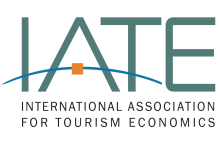2pm - 3:30pm GMT
Tuesday 4 November 2025
Behavioural economics in tourism and hospitality research webinar 2
Overview
Tourism and hospitality decisions are often far less rational than neoclassical economic models suggest. Travel choices involve risk, uncertainty, and emotionally charged future experiences that are difficult to assess rationally, while the abundance of options can lead to choice overload. These complexities highlight the need for alternative approaches. Behavioral economics—drawing on psychology and economics—offers valuable insights by examining how cognitive shortcuts, emotions, and contextual cues shape decision-making. Rather than replacing traditional models, it extends them with a richer understanding of tourist behaviour.
During this webinar, co-hosted by COVE, authors will present papers from a recently published special issue that advance behavioral economics in tourism and hospitality research by applying novel theoretical frameworks or by developing innovative research designs to better capture actual behavior.
List of speakers and their papers
- Boto-García, D., Balado-Naves, R., & Suárez-Fernández, S. (2025). A behavioral microeconomics model of tourist destination choice under loss aversion. Journal of Hospitality & Tourism Research, 1–15. https://doi.org/10.1177/10963480241308349
- Lin, G., Chen, J. L., & Song, H. (2024). The heterogeneity of hotel demand curves across consumers and contexts. Journal of Hospitality & Tourism Research, 1–15. https://doi.org/10.1177/10963480241271307
- Mohammed, I., & Denizci Guillet, B. (2025). Application of heuristics to revenue management systems’ override decision-making. Journal of Hospitality & Tourism Research. https://doi.org/10.1177/10963480251338222
- Nie, L., & Song, H. (2025). Tourism Spending in Response to Stimulus Checks: Insights from Mental Accounting. Journal of Hospitality & Tourism Research. https://doi.org/10.1177/10963480251338215.
Moderators

Professor Gang Li
Professor of Tourism Economics, Associate Head of School - External Engagement, Director of the Centre for Competitiveness of the Visitor Economy
See profile
Dr Marion Karl
Senior Lecturer in Tourism Marketing and Management
Biography
Marion Karl joined the School of Hospitality and Tourism Management as a Senior Lecturer in Tourism Management and Marketing in 2022. Before joining the University of Surrey, Marion worked at UQ Business School, The University of Queensland on a Postdoctoral Research Fellowship and as a Lecturer at Ludwig-Maximilians University Munich.
Marion’s research focuses on travel decision-making and its influencing factors, such as travel constraints, risk perception or emotions. With a focus on sustainability and accessibility, Marion has started to translate her knowledge of travel decision-making into ways that can change tourists’ behaviour in a positive way. Marion is a Sustainability Fellow at the Institute for Sustainability | University of Surrey
Marion is leading the research theme ‘Visitor experience and destination marketing’ in the Centre for Competitiveness of the Visitor Economy at the School of Hospitality and Tourism Management. She is an Associate Editor of Tourism Geographies and serves on the Editorial Board of Journal of Travel Research, Annals of Tourism Research and Annals of Tourism Research Empirical Insights.
Co-hosts


